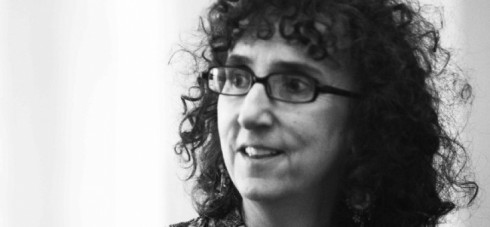
This spring, a diverse group of leading thinkers and activists from around the world gathered at the Sikh community-led Nishkam Centre in Birmingham, England to tackle the important task of engaging in the first consultation of a Charter for Forgiveness and Reconciliation Project. Modelled on the rapidly growing global movement of the Charter for Compassion, the creation of a Charter for Forgiveness and Reconciliation is just as essential but possibly a great deal more challenging.
The challenge of defining forgiveness
I say this only from having worked in the field of forgiveness for ten years and observed what a thorny subject it can be. Conflicting positions and multiple definitions create an ever-shifting landscape with consensus hard to achieve. Whilst most people can broadly agree on what compassion means and how it should be used to treat everyone with justice, equity and respect, the same broad agreement is seldom reached with forgiveness. This doesn’t mean that we have embarked on a thankless task, but rather that crucial to a Charter’s implementation must be wide application and universal appeal. Forgiveness must be seen as both a resilient response to personal hurt as well as a solution to intractable conflict situations. With a concept so hard to pin down and which can so easily stray into moral platitudes, it is essential the power of forgiveness does not become diluted and that the Charter serves as an inspiration for healing and reconciliation and not just a debating tool.
The need to appeal to all cultures, ages
At the inaugural symposium in Birmingham everyone agreed about the healing power of forgiveness and the necessity to promote it in a fractured world, but opinions differed on the human capacity for evil and the limits and possibilities of forgiveness within that context. Some felt religion and faith lay at the heart of forgiveness. Others felt that without also appealing to those of no faith as well as to young people who may find secular conceptions of forgiveness more appealing, the Charter would have no currency. Scherto Gill from the Guerrand-Hermes Foundation for Peace, which co-sponsored the event, was struck by “the fundamental tensions between the conditional and the unconditional forgiveness; the secular and the religious conceptions; and the tensions in the ends/aims of forgiveness.”
Practical insights on forgiveness
Dr. Anthony Bash from Durham University warned against forgiveness “inflation”—the tendency to bring almost anything into the orbit of forgiveness just to put relationships right. He appealed to those around the table to reserve the word “forgiveness” for a moral wrong and spoke about how forgiveness could only be received in tandem with remorse and reparation. Professor Pal Ahluwalia from Australia described the gold standard of forgiveness as being “a gift without any expectation of return.” Maria Nicoletta Gaida, president of the Ara Pacis Initiative, advised that we need to be careful to appeal to all cultures as her experience in Libya had demonstrated that women who had experienced sexual violence chose not to talk about forgiveness but rather referred to healing in terms of dignity and acknowledgement. Alexandra Asseily spoke of historical memory and intergenerational forgiveness, stressing that “each one of us is responsible for cleaning up our own grievances.” Others tackled forgiveness as a public health tool, public or “invitational” forgiveness in post conflict contexts, forgiveness of debts, the prospect of forgiveness post genocide and the tricky dynamic between forgiveness and justice.
Forgiveness as a constellation of responses, interaction
The Symposium was co-sponsored by the Fetzer Institute, the Guru Nanak Nishkam Sewak Jatha (GNNSJ) and the Guerrand-Hermes Foundation for Peace. The draft Statement of Vision and Purpose for the Charter, which builds on the symposium deliberations and preceding discussions, affirms that “forgiving is an activity necessary for healing and reconciliation to take place, when seeking justice and sustainable peace.” The Charter will draw attention to the activity of forgiveness which has its roots in the quality of compassion—the foundation for all dharmas, religions, or faiths. It recognises also that “the process of forgiveness and reconciliation can only be engaged in freely and voluntarily” and that to inspire people to use forgiveness as a practical solution to repair broken communities and transform conflict there is a need to focus on tangible examples of forgiveness in action. The proposed Charter will draw on values, stories, and examples from sacred texts, as well as from the lives of outstanding individuals in order to stir hearts, stimulate discussion and lead to a growing practice of forgiveness and reconciliation, both in public and private settings.
The event was led by Bhai Sahib Bhai Mohinder Singh Ahluwalia, spiritual leader and Chairman of the Sikh community GNNSJ and co-convenor of the Charter for Forgiveness and Reconciliation Project, and by Dr Josef Boehle, Director of the Charter Project. Bhai Sahib stated: “Human beings don’t know their own potential. We have a responsibility to appeal to humanity and try and awaken this spirit of forgiveness.” Undoubtedly there was a great deal of enthusiasm to achieve this precious goal and recognition that the journey may be hard but by no means unachievable. As one member suggested, quoting an African proverb: “If you want to go fast go alone. If you want to go far go together.”
Marina Cantacuzino is founder and director of The Forgiveness Project, a United Kingdom-based charity that uses storytelling to explore how ideas around forgiveness, reconciliation, and conflict resolution can be used to impact positively on people’s lives through the personal testimonies of both victims and perpetrators of crime and violence.


Recent Comments